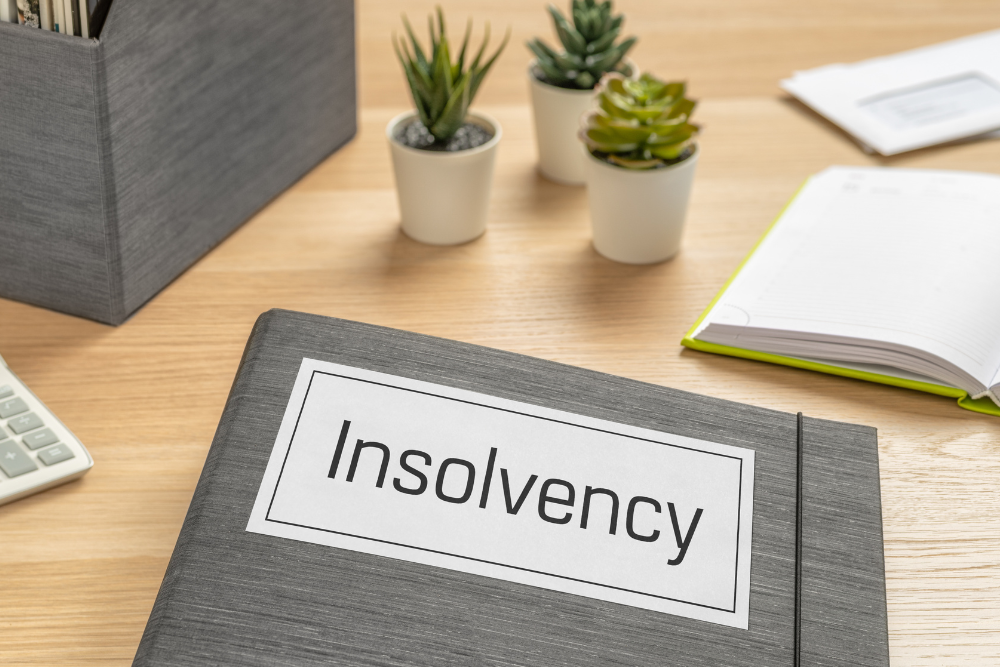Insolvency Practitioner - Questions
Insolvency Practitioner - Questions
Blog Article
Fascination About Insolvency Practitioner
Table of ContentsInsolvency Practitioner - An OverviewAll About Insolvency PractitionerThe Buzz on Insolvency PractitionerThe Best Strategy To Use For Insolvency PractitionerThe Main Principles Of Insolvency Practitioner
Whether or not you require to utilize an insolvency specialist (IP) to liquidate your company relies on different elements. While engaging a bankruptcy practitioner for all kinds of liquidation is not a legal requirement, doing so can typically improve the process and guarantee conformity with legal needs. Liquidating a business is a crucial choice that comes with significant effects.
It is a procedure utilized when a firm does not have any type of financial institutions, or every one of their financial institutions can be paid off completely with legal rate of interest. Recognizing the different types of bankruptcy procedures can help you figure out the ideal course of action for your firm's liquidation or various other official insolvency treatments itself.
This is compulsory in order to follow lawful requirements - Insolvency Practitioner. This is since IPs have the needed qualifications and experience to make sure that the liquidation process is conducted according to all suitable regulations and policies. By involving a qualified insolvency expert, you can have comfort understanding that your firm's liquidation process will be dealt with skillfully and in conformity with the relevant legal demands
Getting The Insolvency Practitioner To Work
The bankruptcy practitioner is appointed as a liquidator and is in charge of managing the company and liquidator's debts outstanding liabilities and assets. This process entails selling the company's possessions and distributing the proceeds to creditors. Upon conclusion of the procedure, the business is removed from the register at Companies House.
Failing to do so can lead to personal responsibility for the business or supervisor for the lender's debts. Volunteer liquidation, which includes Financial institutions' Volunteer Liquidation (CVL) and Members' Volunteer Liquidation (MVL), is initiated by the firm's directors and investors when they can no more pay their financial debts. In a CVL, the insolvency practitioner is marked as the liquidator, in charge of managing firm financial debts and all business possessions.

Some Ideas on Insolvency Practitioner You Should Know
By examining the knowledge and experience of potential bankruptcy specialists, you can guarantee that you select a professional that has the necessary qualifications to manage your firm's liquidation process properly. While bankruptcy practitioner-led liquidation is often the most appropriate course of action for companies facing insolvency, there are alternate strategies to take into consideration, such as striking off and partial liquidation.
It's important to assess all offered alternatives before picking the following best option or strategy for your organization. Striking off companies' signs up is an extra uncomplicated and economical means to close dormant or tiny companies without financial debts or properties. To strike off a business, its name is eliminated from the Business Residence register by sending type DS01.
Before choosing for striking off, it's vital to consider the benefits and downsides of this method and consider whether it's the appropriate selection for your company. Partial liquidation is an additional option to bankruptcy practitioner-led liquidation, where a business sells off specific assets and liabilities while remaining to run with the continuing to be possessions and responsibilities.
A Bankruptcy Professional will certainly have the ability to advise you of the most effective strategy to take and make certain that whatever runs smoothly. It is not feasible to liquidate a company without a liquidator. Assigning an authorized insolvency expert is needed for the procedure of volunteer liquidation to start.
Some Known Incorrect Statements About Insolvency Practitioner
It is possible to close this post and liquidate your business without utilizing a liquidator, given your company is solvent and you meet the eligibility demands to liquify or liquidate it. If your business is bankrupt, you may be needed to utilize a liquidator and begin official bankruptcy procedures. Right here are a few other informative articles regarding company liquidation in the UK:.
Being in a position where you're unable to pay your company's lenders is very demanding. In an effort to stay clear of raising the degree of financial obligation, lots of business try to discuss directly with their creditors and consent to a casual setup. If the visite site financial obligation is rather little and owed to one lender, and the creditor is being cooperative, getting in into an informal financial obligation setup is probably the very best remedy, as opposed to browsing the web for 'a bankruptcy specialist near me'.
On the various other hand, if there are multiple lenders and the degree of financial obligation is big, creditors might not be so ready or participating. To avoid liquidation or bankruptcy, it is better to hire a bankruptcy expert to prepare official propositions and discuss with financial institutions on your behalf.
The Of Insolvency Practitioner
Whilst it is a means to take care of debt, there are significant risks entailed with this kind of financial obligation plan - Insolvency Practitioner. If a financial institution wants to become part of an informal setup (IA) wherein the borrower has consented to make regular, if lower, payments to pay off the financial obligation, it is necessary to adhere to the agreement

The lender is within their legal rights to back out of the agreement and application the courts for your business to be sold off at any time. An official setup that has been recommended by an insolvency practitioner on your part, and concurred by a creditor, provides a much safer choice.
Report this page